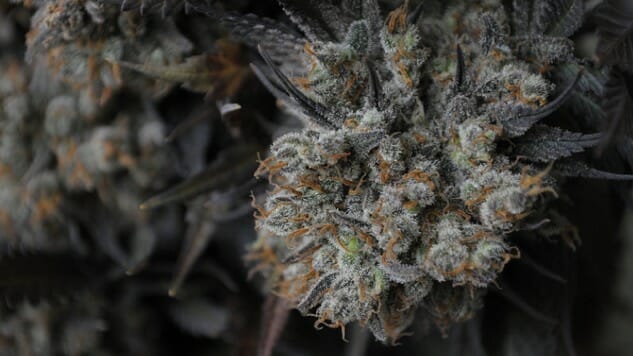Cannabis Connection: Is CBD a Miracle Drug or Just Snake Oil?

Cannabidiol (CBD) is one of more than 100 phytochemicals in cannabis plants, and these naturally occurring compounds are collectively known as cannabinoids. When introduced into the human body, these compounds act on the endocannabinoid system with receptors in the immune, central and peripheral nervous systems. CBD and tetrahydrocannabinol (THC) are the most abundant cannabinoids in cannabis, and their effects can be quite different. For example, THC has psychoactive properties that produce euphoric highs, while non-psychoactive CBD actually reduces or delays THC-triggered highs. Likewise, THC has many potential health benefits, but CBD could be the leading cannabinoid for improving health and treating disorders, and it can be extracted into oil for delivering precise dosage. From treating cancer to pediatric epilepsy, CBD has tremendous health potential, but is it a real treatment or simply over-hyped snake oil? Here is what we know so far.
The Endocannabinoid System
The cannabinoid receptor system includes receptor type 1 (CB1) and type 2 (CB2), and THC is a partial and/or full agonist, meaning it binds to the receptors and produces specific biological actions. CBD, however, is an indirect antagonist, meaning it impedes such biological actions (such as euphoric highs). The body also produces natural cannabinoids, called endocannabinoids, that bind to these receptors, and CBD indirectly acts on these receptors by stimulating the natural production of 2-AG and suppressing the enzyme FAAH that metabolizes anandamide. Studies associate these endocannabinoids with several health benefits, including pain management and treating mood disorders. CBD is also an antagonist for GPR55, a receptor associated with cancer proliferation, and studies have shown the cannabinoid holds great promise for treating certain types of cancer. For example, a study published in the British Journal of Clinical Pharmacology in 2013 found that CBD’s anticancer properties interfere with “tumor neovascularization, cancer cell migration, adhesion, invasion and metastasization.”
While CBD does not directly act on the cannabinoid receptors, it does bind to other receptors producing potentially beneficial effects. For example, CBD binds to the serotonin receptor 5-HT1A, potentially providing antidepressant, anti-anxiety and neuroprotective benefits. Clinical studies published in journals like Brain Research in 2005 suggest 5-HT1A agonists help inhibit drug-seeking behavior, making it a potential treatment for drug addiction. CBD also binds to the TrpV-1 (pain, inflammation, body temperature) receptor. THC has many potential medical benefits as well, and studies suggest THC and CBD work better together, but a formulation higher in CBD than THC can minimize (or prevent) the psychoactive high associated with THC. Moreover, CBD is abundant in low-THC hemp, and it can be isolated into oils that are safe for children and pets. When used to treat certain medical conditions, CBD oil is legal in most states, including Alabama, Mississippi, Oklahoma and Utah, despite still falling under the federal government’s overall cannabis prohibition.
What Else Do the Clinical Journals Say
Larger controlled studies are needed, but so far CBD appears to have medical applications for anxiety disorders, schizophrenia, inflammation, diabetes, rheumatoid arthritis, multiple sclerosis, epilepsy, post-traumatic stress disorder (PTSD), opiate addiction, neurodegenerative disorders, heart disease, muscle spasticity, Parkinson’s, Alzheimer’s, Crohn’s disease and Dravet’s Syndrome, among others. The medical journals are filled with study titles that highlight the potential, including the following:
Molecular Cancer Therapeutics 2014: “The combination of cannabidiol and ?9-tetrahydrocannabinol enhances the anticancer effects of radiation in an orthotopic murine glioma model.”
Translational Psychiatry 2012: “Cannabidiol enhances anandamide signaling and alleviates psychotic symptoms of schizophrenia”
The Journal of Pharmacology and Experimental Therapeutics 2006: “Antitumor Activity of Plant Cannabinoids with Emphasis on the Effect of Cannabidiol on Human Breast Carcinoma”
Epilepsia 2014: “Cannabidiol: Pharmacology and potential therapeutic role in epilepsy and other neuropsychiatric disorders”
Proceedings of the National Academy of Sciences of the United States of America 1998: “Cannabidiol and (?)?9-tetrahydrocannabinol are neuroprotective antioxidants”
-

-

-

-

-

-

-

-

-

-

-

-

-

-

-

-

-

-

-

-

-

-

-

-

-

-

-

-

-

-

-

-

-

-

-

-

-

-

-

-








































